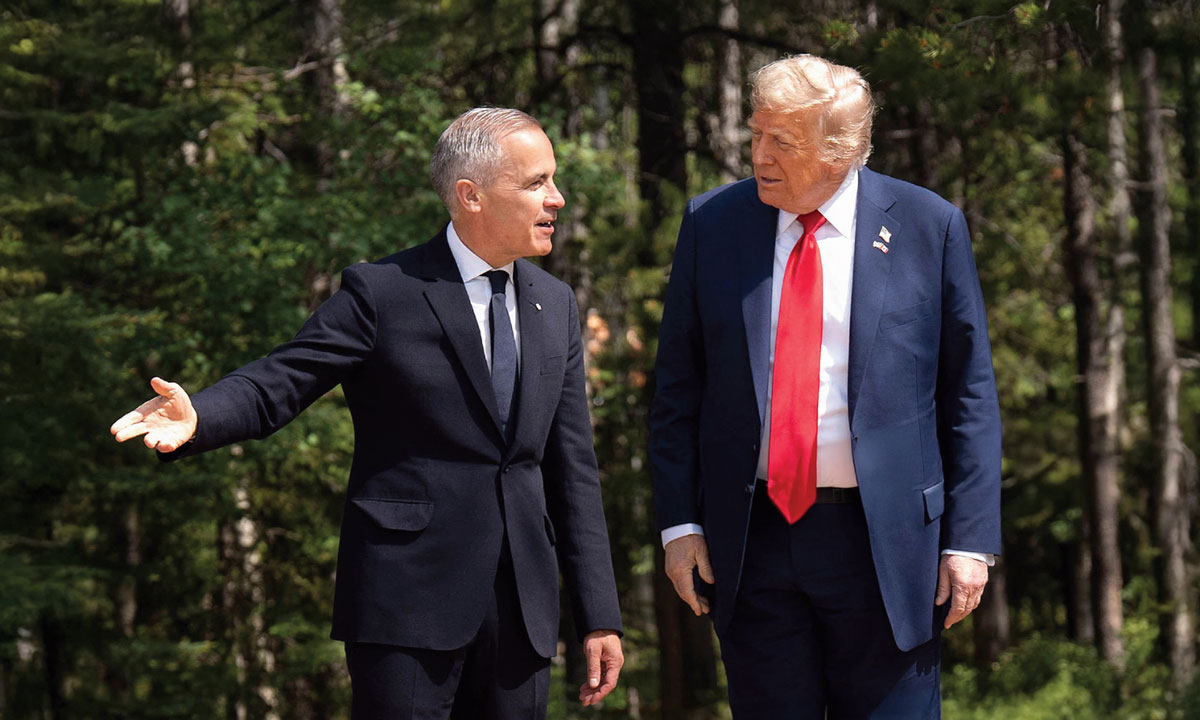Auto dealers can play a key role in helping inform national policy as the new government settles in to power
As we discussed in our last column, the federal election is now well behind us. With this new political environment — which for some is perceived as a breath of fresh air — there are legitimate reasons to believe that some of the policies pitched to Canadians during this process could eventually be implemented.
Talks about a stronger, more efficient, competitive and tightly-connected economy have been continuing quite vividly since the end of the election and, despite the obvious regional and partisan challenges that will inevitably arise, there is a window of opportunity.
A new Parliament, from its start to its end, is always characterized or shaped by the main political issues of the period in which it exists.
This Parliament’s story will be written by the public and our elected officials, but its general direction will be dictated by the current conjecture which has obviously been dominated by the U.S and Canada relationship. There is no need to say that this unfortunate situation and political environment aligns extremely well, in terms of industry engagement, with what automobile dealers know, are hearing and have recently experienced.
On top of that, a new Parliament means that novice, eager and interested elected officials are now slowly settling in Ottawa with an acute intent to solve important problems.
Many of them have already met automotive dealers — at a campaign stop, a roundtable, or during a discussion about affordability, EVs, or jobs in their riding. They’ve heard what dealerships mean to local economies. Now, they’re able to shape policies that directly affect the future of our industry.
This creates a window of opportunity for auto retailers to step forward as more than just economic stakeholders. Dealers have the capability of being meaningful and productive political actors, in a way that is non-partisan and focused on strengthening an important sector of Canada’s economy.
Auto dealers don’t just sell vehicles: they track changing consumer behaviour and sentiment, navigate affordability concerns, manage service backlogs and understand supply chain challenges, and ultimately respond to economic shifts in real time.
That knowledge is exactly what policymakers require to make proper decisions; it is also extremely timely because of the political climate we are in.
In other words, the influence of the auto retail industry isn’t simply limited to the instances where a specific policy is drafted. It’s about ensuring that the policymaking process is informed from the ground up — by people who see how those policies will land in the real world.
In this current economic and political environment where there are major societal questions on affordability, access to product, employment growth and private investment stagnation, there are very few sectors better equipped than auto retailers to provide real-time, accurate descriptions of what is really happening in our economy.
For example, over the last few months several policy conversations have ramped up as the trade war with the U.S endured and improved Canadian economic resiliency became a critical need rather than a partisan position. While our government officials make crucial decisions on these matters, auto dealers’ inputs and insights could prove to be essential in getting them right:
Tariffs and trade uncertainty: Since Canada is still facing a difficult auto tariffs situation that keeps breeding commercial uncertainty, policy makers have to make major decisions on this crisis. Varying levels of tariffs (both from the U.S. and retaliatory) on the auto industry will have economic effects on inventories, pricing, and consumer behaviour. Dealers are often the first to feel these shocks at the retail level and have the expertise to communicate the impacts on their businesses;
Federal ZEV mandate: Ottawa’s sales targets for zero-emission vehicles are ambitious and rooted in a shared vision, but the challenges they create — especially in provinces where demand, infrastructure, or incentives aren’t aligned — require on-the-ground context that only dealers can provide; and
Interprovincial Trade Barriers: The federal government has signaled a renewed interest in removing barriers to interprovincial commerce. For the auto industry, this matters. Auto dealers experience the frustration of inconsistent regulations around emissions, language, and registration firsthand. This unique and expert perspective is crucial to building a system that drives business and trade across jurisdictions.
In all these cases, data alone is not enough. What policy-makers need is real stories from real places, backed by real numbers. New car dealers can show how a new regulation plays out in a rural community versus an urban one, or how consumer confidence responds to price volatility, interest rates, or sudden changes to incentives.
Now is also the right time to provoke some of that engagement. The summer and early fall period is a time where Members of Parliament are back at home and are eager to meet local businesses.
Dealers are present in nearly every community in the country and that presence isn’t just a business asset; it’s a political one.It means you have access to elected officials, visibility with constituents, an expertise and a pool of knowledge that carries weight when it comes to decisions that affect affordability, mobility, and consumer choice.
Let’s capture the opportunity of a new Parliament to ensure that political decision takers are turning towards some of Canada’s best deal makers and community builders for insights, experience, and leadership on the future of our automotive industry.

















